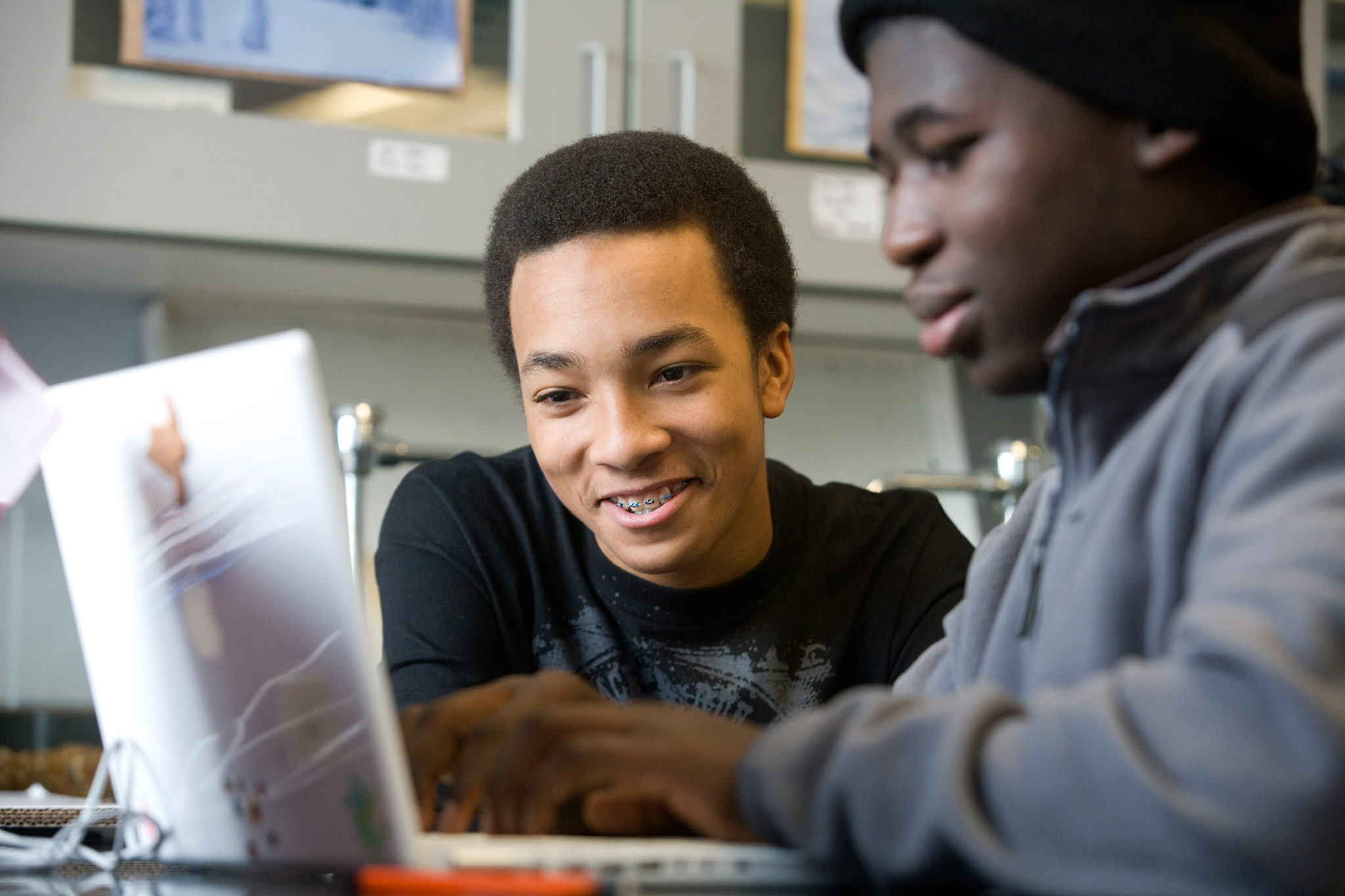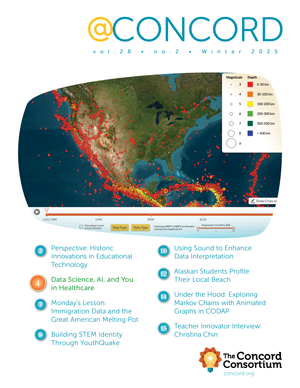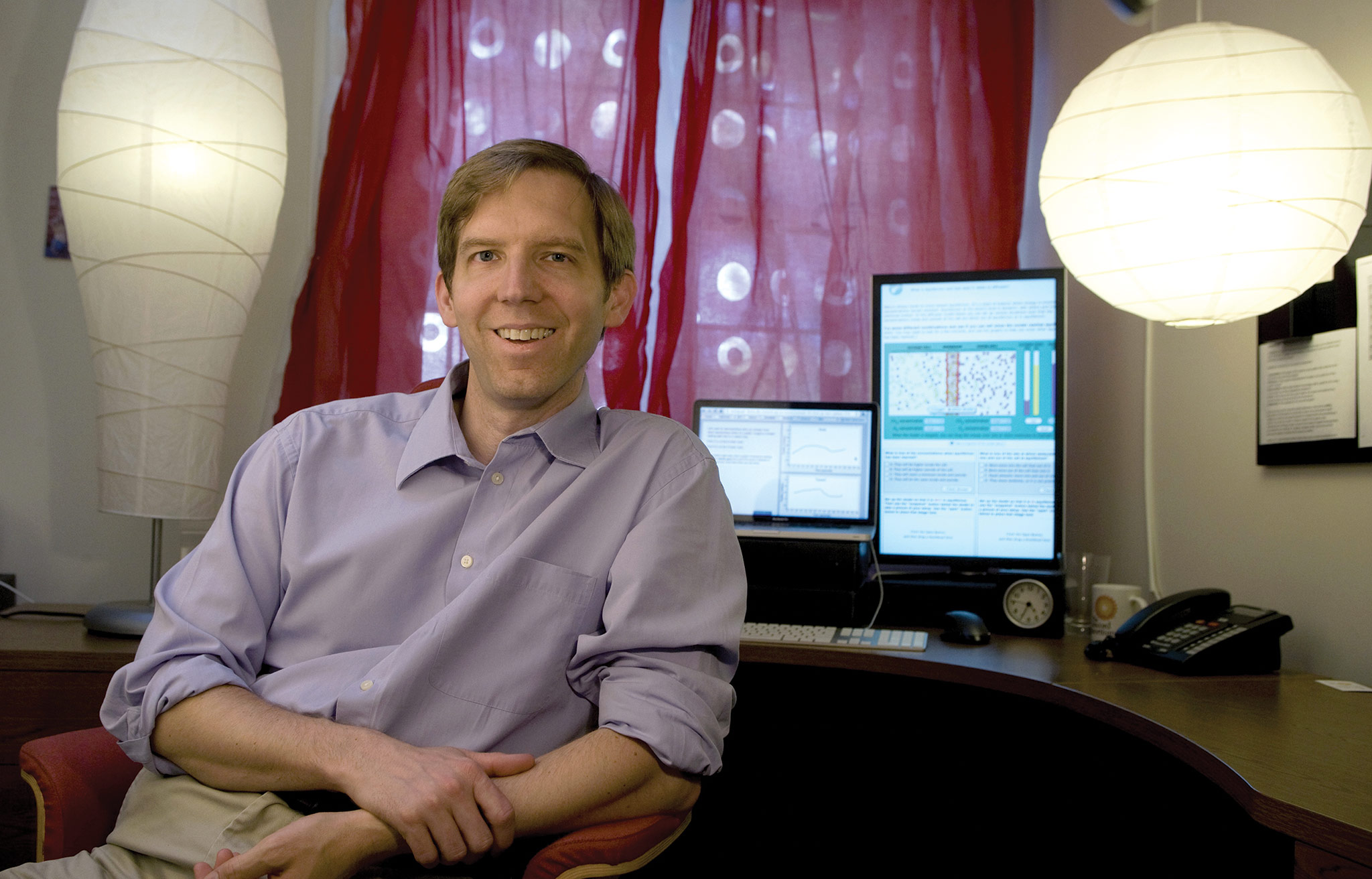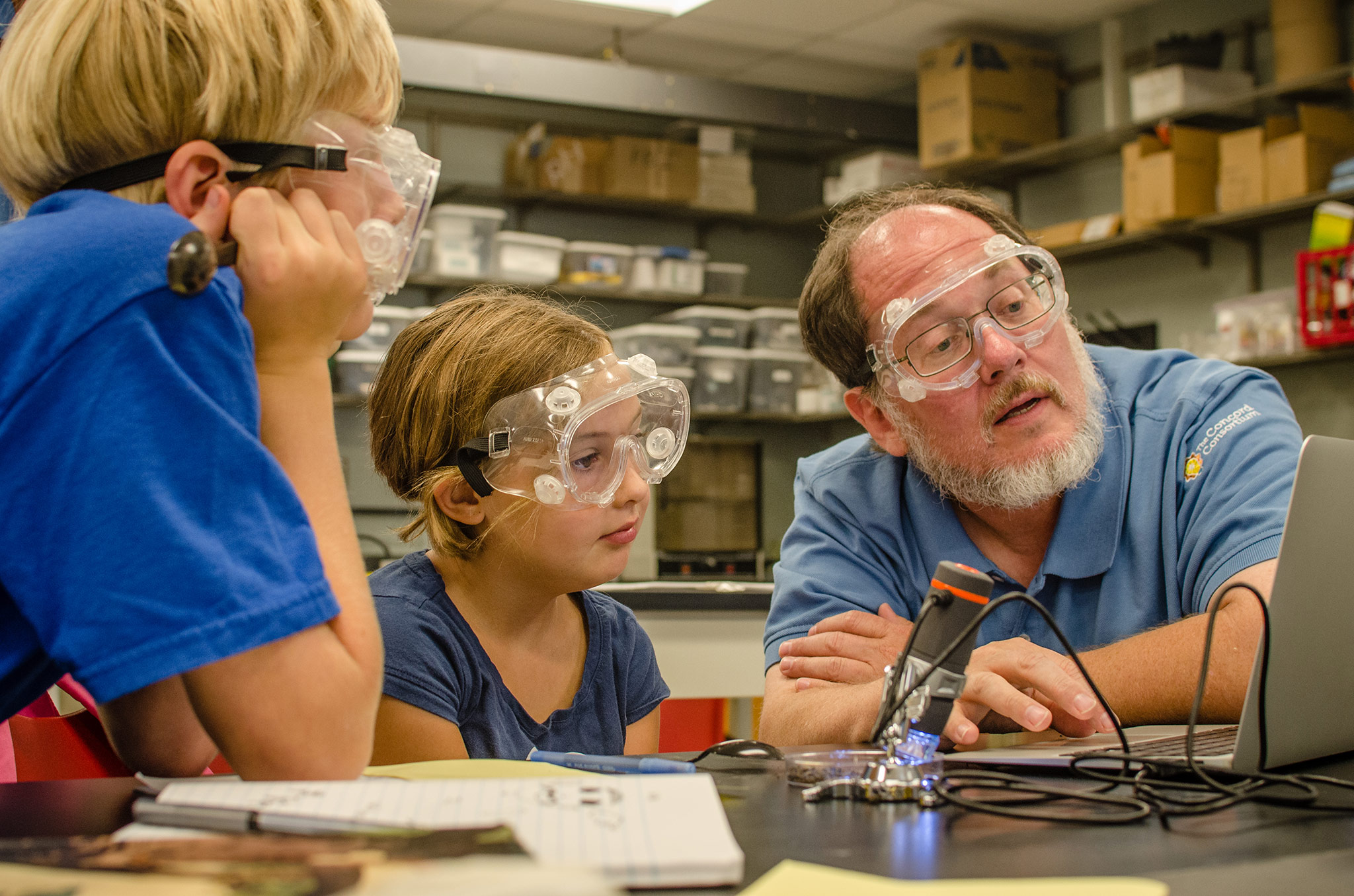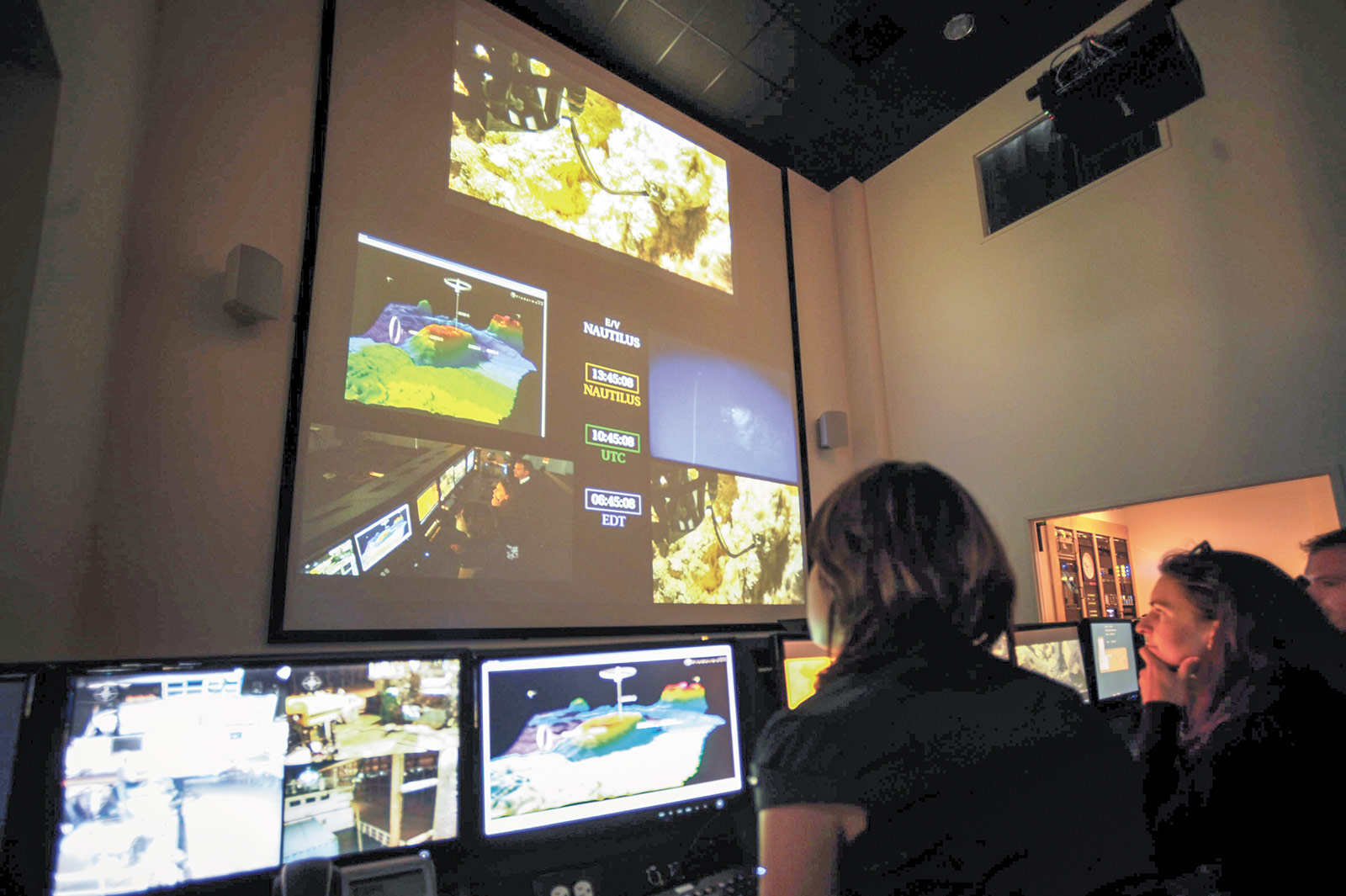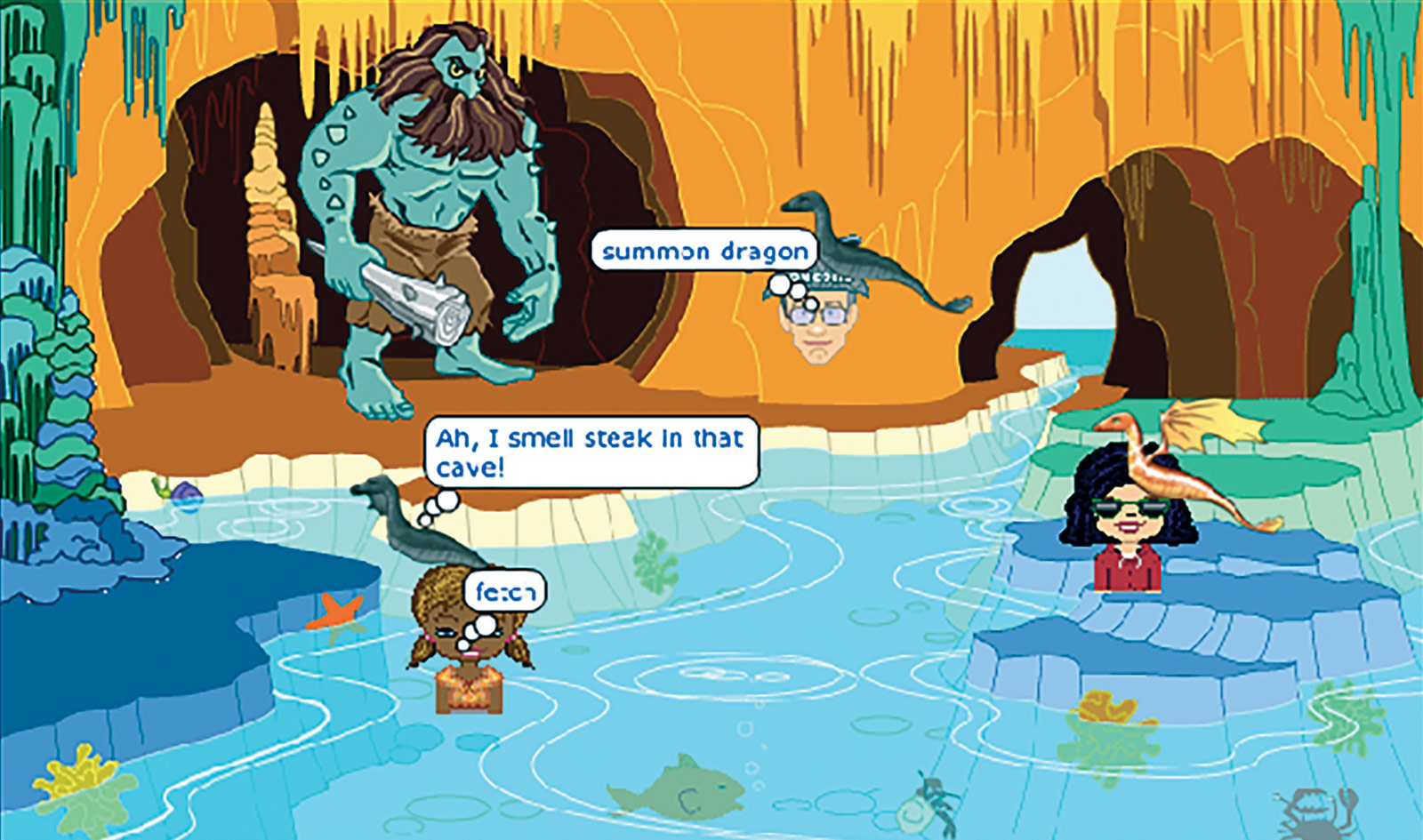Innovative Technology in Science Inquiry, Ocean Research Using Telepresence, Using Social Networking to Learn Genetics, and more in Fall @Concord
Perspective: 20 Years of Innovation: Looking Back and Looking Forward
The past 20 years at the Concord Consortium have seen educational technology history in the making. When we started out in September 1994, Yahoo! and Netscape were both only months old, and it would be nine months before Amazon.com would launch or Sergey Brin would first show Larry Page around the Stanford campus, a new friendship still years from forming Google. The Web may have been in its infancy, but in 1994 the Concord Consortium’s founding staff had already been transforming STEM learning through technology for decades. And despite everything we’ve done over two decades, we’re just getting started.
Innovative Technology in Science Inquiry
The goal of the National Science Foundation’s Innovative Technology Experiences for Students and Teachers (ITEST) program is to enhance K-12 students’ motivation and participation in STEM subjects and interest in STEM careers. Through our Innovative Technology in Science Inquiry project and its subsequent scale-up grant, both funded by ITEST, we have been working to get students excited about science, technology, engineering and math.
Monday's Lesson: Exploring Atomic Structure
The Interactions project is developing a new interdisciplinary semester-long course that lays the foundation for deeper understanding in physics, chemistry and biology. This ninth grade course, developed in partnership with the CREATE for STEM Institute at Michigan State University and the University of Michigan, is inspired by the Framework for K-12 Science Education and the NGSS, which encourage students to learn science by engaging in science practices.
Ocean Research Using Telepresence
Oceanographic research is undergoing a transformation—from a distance. While scientists still board a ship and navigate to locations around the globe to collect data, current research often relies on remotely operated vehicles (ROVs) to take scientists and explorers to the ocean floor virtually. What if ocean research went one step further? What if engineers operated the ROVs from the vessel but scientists conducted observations, analyzed data and made research decisions from shore? Thanks to a new project, scientists can test this scenario, and students can also conduct remote research.
Using Social Networking to Learn Genetics
The rise of social networking is perhaps the most spectacular—and to many the most unexpected—phenomenon of the 21st century. It continues to have dramatic political and cultural effects around the globe and its impact on commerce is unprecedented. Seventy-seven percent of youth aged 12 to 17 in the United States are a member of at least one social network.
Developing Assessments for the NGSS
The Next Generation Science Standards (NGSS) consist of performance expectations that combine three dimensions of learning: science and engineering practices, disciplinary core ideas, and crosscutting concepts. According to the NGSS these three dimensions should be integrated in curricula and assessments. Since previous standards separated content and practices such as inquiry, the new standards represent a significant shift and present a challenge for teachers and the wider assessment community, including publishers and organizations that create standardized tests. New types of assessments are needed.
Under the Hood: Rapid Gameplay Prototyping
Paper prototyping is great for designing games. But what do you do when you want to try out a multiplayer game idea too fast paced for a human game master? Recently we used HTML5 + Firebase and Google spreadsheets to develop play-testable mockups of the UI and mechanics of a multiplayer game—all in a few short days.
Innovator Interview: Bill Finzer
Meet Concord Consortium senior scientist, Bill Finzer. Learn about his early interest in computer science and his vision for data in education.
News at Concord Consortium
The latest news from the Concord Consortium in fall 2014. New Grants: Teaching, Teamwork, Enhancing Scientific Argumentation through Automated Feedback, Water SCIENCE, and more.
